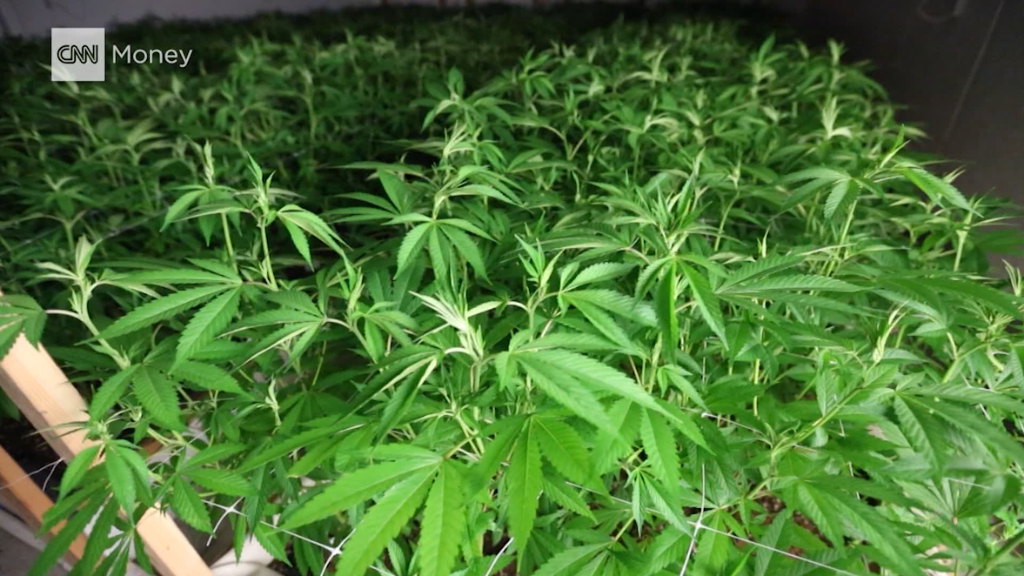Editor’s note: The July 25 post “Shawn Geerdes’s Marijuana-Grow Murder Used to Attack Legal Pot” asserted that 18th Judicial District DA and 2018 Colorado gubernatorial candidate George Brauchler had attempted to score political points with anti-cannabis critics by way of post-prosecution statements such as, “Here is yet another violent crime related to marijuana. Whatever benefits there may be from the legalization of marijuana, eradicating violent crime associated with it is not one of them.” Here’s his response.
Michael Roberts recently claimed that I used the Shawn Geerdes murder conviction “as an opportunity to criticize legal pot, even though the marijuana grow [involved in the case] was illegal.”
Respectfully, Mr. Roberts is wrong.
The marijuana grow in the Geerdes case was legal. While the murderous violence in the case was motivated by a shared marijuana grow with the victim, that grow complied with Colorado law. Our office did not prosecute Geerdes at trial for illegal cultivation of marijuana, because the grow complied with existing Colorado law.
The campaign to legalize recreational marijuana was, in part, premised on the argument that crime related to marijuana would markedly decrease if the amendment passed. Just prior to the announcement election results on Nov. 6, 2012, Amendment 64 spokeswoman Betty Aldworth told Westword , “If we pass Amendment 64 today…we will live in a state where our law-enforcement resources are dedicated to pursuing violent and otherwise serious crime….”
Without question, legalizing marijuana possession and allowing for retail sales has resulted in fewer possession charges. That is common sense. But that is not the entire story.
Since the passage of Amendment 64, jurisdictions across the state have noted significant violent crime related to marijuana cultivation and distribution. Our jurisdiction of Arapahoe, Douglas, Elbert and Lincoln counties — 45 percent more populous than Denver — has had at least eleven homicides motivated by marijuana since passage of Amendment 64, including the Geerdes murder.
That number includes the yet-uncharged death of Travis Mason, who was killed while working as a security guard at the Green Heart dispensary in Aurora. Zakaria Hussein Ali is spending the rest of his life in prison for stealing the marijuana plants growing in the basement of Carlos Muse and leaving him to bleed to death in his home.
Those eleven homicides do not include the many more robbery, burglary, and attempted-murder cases in our community also motivated by marijuana. Just last month, a 26-year-old man was sentenced to prison for attempted first-degree murder for a gun fight at the Aurora mall over fake marijuana.
And those are just a few of the examples of the most serious cases.
I opposed Amendment 64 when it was on the ballot — the same year I was elected district attorney for a jurisdiction more than one in six Coloradans call home. I believed it was being done too quickly and broadly for law enforcement to adequately respond, we lacked an appropriate regulatory framework, and I wanted it in our statutes, where we could more easily adjust to future problems we discovered. Instead, 55 percent of Colorado voters in 2012 put legalized recreational marijuana into our state constitution. I believe in the rule of law and I respect the will of Colorado voters. I believe our focus now must be to enforce the spirit and words of that amendment and its related statutes, while trying to protect our communities and our children.
In order to best serve the community I represent, I have met with members of the legal marijuana industry and have toured some of the largest legal operations in Colorado. These business owners have spent millions of dollars to comply with a volume of regulations and limitations imposed by state regulators. Minor mistakes in compliance result in large fines and the risk of losing needed licenses. I have thus far found an industry committed to seeing the end of the black and gray cannabis market. That, however, is not enough.
Many law enforcement agencies in Colorado are overwhelmed with trying to enforce the crimes involving marijuana. People are growing marijuana in Colorado — legally and illegally — to sell out of state, where they can make a return of several times their investment. Even those who have no intention of crossing state lines put their communities in danger when they steal power and try to make their own “shatter” or hash oil. There are also the countless illicit sales that are under the radar of law enforcement but outside the regulatory framework enacted by the state and municipalities.
Mr. Roberts is correct that I believe “legal cannabis hasn’t ended black market weed dealing or the societal ills that come with it.” There is still significant crime associated with marijuana, and I will continue to point that out and prosecute it when it occurs.
credit:westword.com











